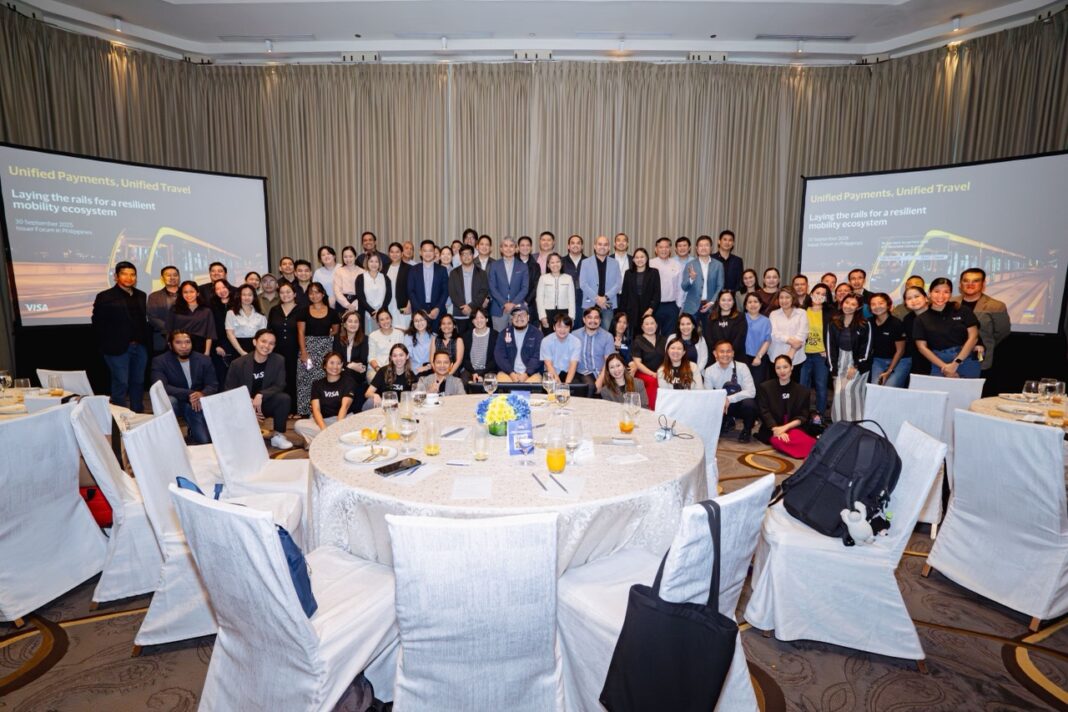With the launch of the open-loop, contactless payment system in the MRT last July, Visa is readying local banks to facilitate transit payments for expansion to LRT 1 and 2
Philippines, October 16, 2025 – Visa (NYSE: V), a global leader in digital payments, is gearing up for the expansion of automated, contactless fare systems to other train lines in partnership with Rizal Commercial Banking Corporation (RCBC). Through a workshop on smart mobility, Visa and RCBC shared solutions and best practices for issuers on managing digital payments for various modes of transit, particularly urban rail.
This workshop is in preparation for the launch of secure, seamless digital payments on other modes of transit in the Philippines. Working with RCBC and other transportation stakeholders, Visa is accelerating the upgrade of payment systems for the Light Rail Transit (LRT) lines 1 and 2, which have a combined daily ridership of more than 500,000. This will be Visa’s fourth transit project in the country – following the success of other cashless transit projects such as the MRT-3 and bus systems in Cebu, Mandaue, and Bacolod.
According to the Visa Economic Empowerment Institute, open-loop, contactless systems in public transit could potentially boost ridership by up to 10 percent[1]. The shift to digital payments also advances urban mobility, as it responds to evolving commuter preferences for transit. Across Asia-Pacific, 94% of riders[2] expect contactless payments to be offered on their rides, and 45% of commuters[3] would take more trips if it were easier to pay their fares.
“We fully support the government’s vision of transforming everyday commuting experiences for the public, and making them efficient, hassle-free, and truly at par with transit services around the world. We hope to launch contactless payment systems in LRT 1 and 2 within the year,” highlighted Mylene Bico, Chief Commercial Officer of RCBC Credit Cards.
“Enabling commuters to use their cards and smartphones to pay is a step towards broadening digital and financial inclusion, which is a longstanding commitment that Visa shares with the government. When we remove barriers to digital financial systems, we reduce wait times, improve overall accessibility of public transport, and increase productivity to help uplift the economy,” added Visa Philippines Country Manager Jeffrey Navarro.
With more than 870 tap-to-ride transit projects globally, Visa continues to deliver innovative mobility solutions that advance economic development, support inclusive growth, and position the Philippines as a global leader in smart, sustainable urban infrastructure.
[1] and 3 Visa Economic Empowerment Institute. (2023). Reimagining ridership: Open-loop payments and the future of urban mobility. https://usa.visa.com/content/dam/VCOM/regional/na/us/sites/documents/veei-reimagining-ridership.pdf
[2] Visa’s Future of Urban Mobility survey, conducted by Wakefield Research in May 2023, among 11,500 respondents who take public transportation in 12 markets: Singapore, Japan, Egypt, Australia, United States, Indonesia, United Kingdom, Pakistan, Germany, Italy, Mexico, Chile. Quotas were set for 1,000 respondents per market except Chile (500).


